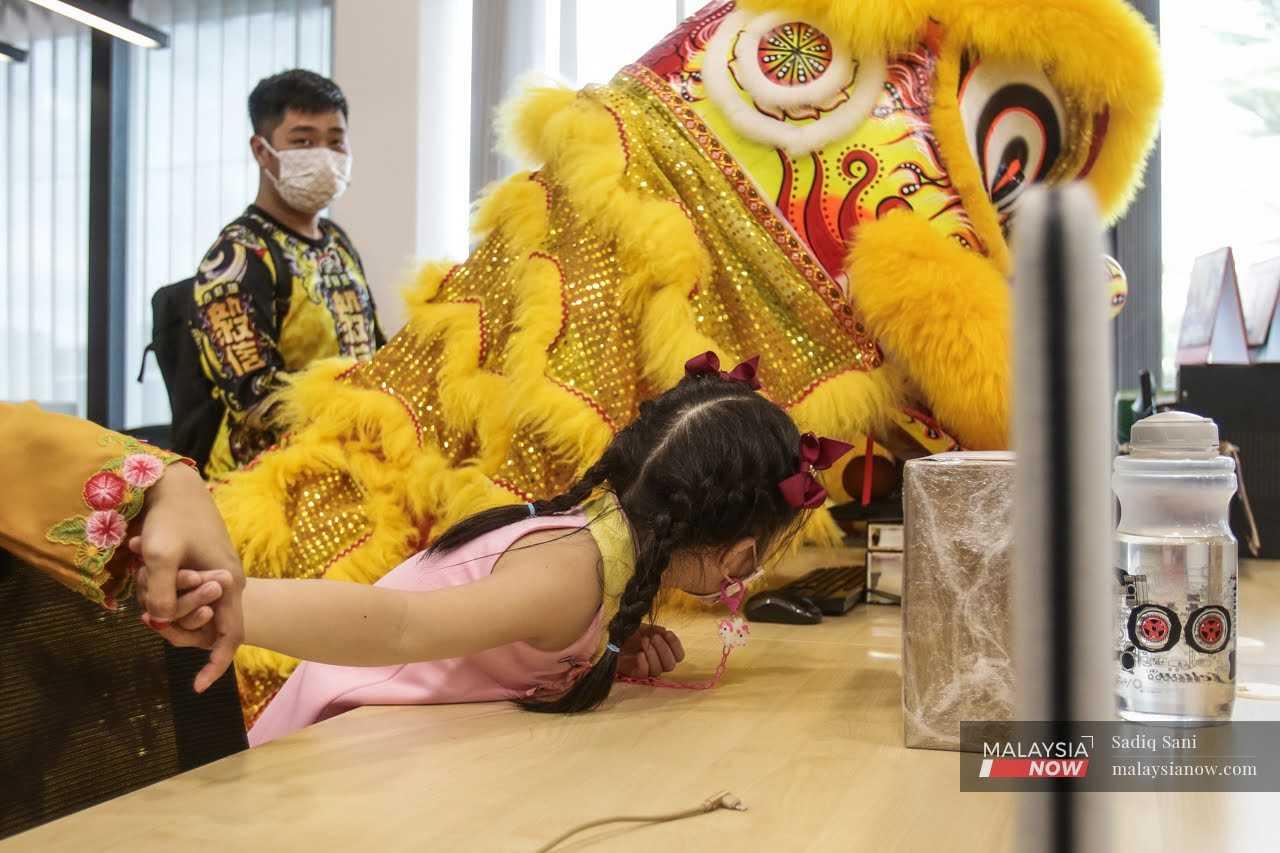Waiting for the sound of the lion dance once more
After two years of pandemic restrictions, Dean Lim and his family are eagerly awaiting the return of traditional new year celebrations.
Just In
The sound of drums, gongs and fireworks fills the air at a housing area in Subang Jaya, Selangor, as a brightly coloured lion leaps and twirls through the air.
Children shriek with joy as the lion dancers, dressed in bright red and yellow, tumble and somersault through their routine, shaking the huge lion's head to make its eyes blink at the onlookers.
Dean Lim and his children clap and cheer with the rest of the crowd, leaning over to pat the lion's furry shoulders.
As the performance comes to an end, Lim calls his grandchildren to take a picture with the troupe.
"Smile!" he says, immortalising their smiles in his phone's gallery.
Speaking to MalaysiaNow, Lim said his neighbourhood had been still and quiet for more than two years throughout the Covid-19 pandemic.
Even before that, he said, he and his family were rarely in the country during Chinese New Year.
"We would go on trips to Australia and Japan, and most often of all to the US to shop or to visit our children who are working there," he said.
For 10 years, this was their routine.
"But the pandemic made me regret it," Lim added. "Stuck in the house, I found myself longing to hear the sound of fireworks again, and the music of the lion dance."
This year, as his family gathers to usher in the Year of the Rabbit, Lim has given his young grandchildren strict instructions.
"I told them to stay here, don't go anywhere. Because we want to see the lion dance.
"This is part of our tradition that has endured for thousands of years."
In Malaysia, lion dances are a common sight during Chinese New Year, at homes, malls and even on the streets where people of all communities gather to enjoy the performance.
Two dancers are required per lion, one to move the head and the other to form the rear end.
Accompanied by gongs, drums and cymbals, the lion dance is believed to bring good luck and prosperity.
The E-xin Dragon Lion Dance Group, which conducts training and performances throughout the year, estimates that a house performance can cost anywhere from RM800 to RM1,300.
Coordinator Aron Kong said the dance would depend on the type of event, whether an open house, a company event or a celebration at home.
"If the host has another event in the evening, we perform at his house as well," Kong added.
Speaking to MalaysiaNow, he said most customers go for the RM1,300 package which he described as the price range for a regular performance.
"If they want a lion dance where the lion leaps from pole to pole, we charge them more, around RM3,000 and above.
"Usually requests like this are made by the bigger families."
While lion dances are associated with Chinese New Year, Kong said his team continues practising and performing throughout the year.
During the non-festive period, they participate in local and international competitions and do special performances for events like business launches.
Back in Subang Jaya, Lim said he and his grandson had looked since December for a lion dance team to go house to house for this year's new year.
He is determined to make this year's celebration more special even though he lost his second son to Covid-19 at the end of 2020.
"My grandson and I spent RM10,000 to sponsor lion dance performances at the homes of people we don't even know," he said.
"We hope that this will help make their celebrations more special as well."
As for the son whom he lost to Covid-19, Lim said the lion dances were for him as well.
"He would be happy to know about this," he said. "We are doing it in his memory. Happy Chinese New Year!"
Subscribe to our newsletter
To be updated with all the latest news and analyses daily.
